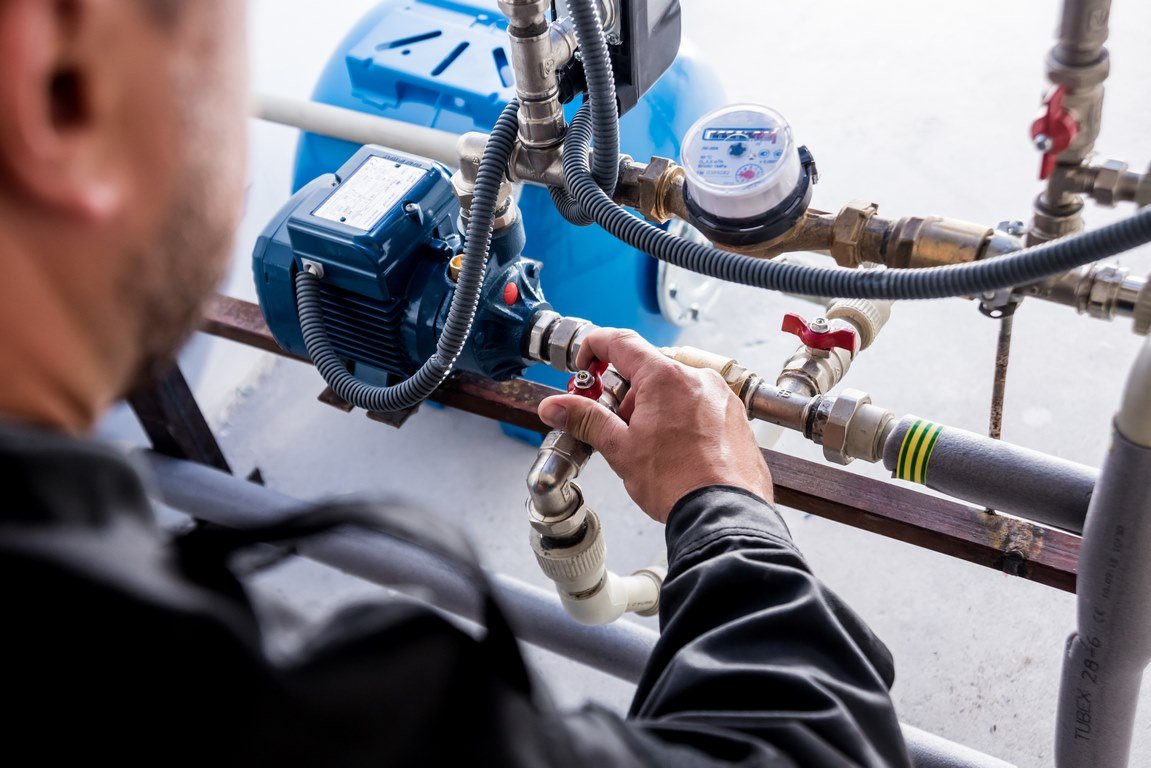Table of Contents Show
Plumbing systems in a home are necessary because they drain the dirty water and bring in fresh water, which is distributed throughout the house. Therefore, maintaining its upkeep should be a priority for any homeowner. This includes ensuring that your plumbing lines are in good working order.

Fortunately, it’s not difficult to effectively maintain your home’s plumbing systems and to look out for common issues such as broken pipes, leaks, rusted pipes, clogs, odors, and more. Today, we rely on modern plumbing systems, which are easier to take care of than old complex piping systems and appliances.
It’s essential to understand your home’s plumbing system so that you may quickly address minor problems when they arise. Remember that not all plumbing problems require the services of a plumber. There are different methods for saving money on plumbing repairs.
However, many people tend to disregard the plumbing system’s routine maintenance until something goes wrong. You may incur costly repair or replacement costs, house damage, and other plumbing problems without proper maintenance. Listed below are maintenance tips for your home’s plumbing systems.
1. Check for Leaks Regularly
Adopt this as a routine. Always perform regular checks for leakage. Even if they are minor leaks, they will affect your water expenses. A leaking and running toilet can waste a significant amount of water, resulting in high water bills.
Additionally, leaks in the home can be caused by refrigerators, washing machines, dishwashers, water heaters, and showers.
Accordingly, calling a plumber as soon as you find evidence of leaks in your home is a must. To avoid structural damage and attracting pests like termites, rodents, and termites, it’s essential to inspect and repair corroded or rusted exposed pipes.
It would be best if you fixed your pipelines as soon as you noticed a problem so that it doesn’t get out of hand.
Read Also:
2. Clear Your Drains
Always pay attention to your drains. Are they too slow? If so, it means you might have clogged drains and need to be cleared immediately. The culprits that cause slow or clogged drains are tree roots, hair, food, soap, small objects, and mineral buildup.
Before the drains entirely clog, there are some simple things you can do to keep the culprits from blocking the drain. Use a special guard in your shower drain to keep your hair from flushing into the gutters.
Furthermore, never flush diapers, wipes, cotton balls, or toilet paper down the toilet. If you have doubts that your toilet is clogged and are looking for additional reasons to call a plumber, you can find more help here about the warning signs of a clogged toilet.
You should always keep an eye on what’s going down your drains. It would be best to place mesh covers in every drain path, including the sink to prevent the culprits from going down the drain.
3. Avoid Chemical Cleaners
If your drains are clogged, it’s understandable how tempting it is to reach for chemical drain cleaners. However, they can provide temporary relief but will not permanently clear your drain.
That means you’ll have to use them to keep your drainage system running smoothly. On the other hand, these chemical cleaners contain caustic chemicals that harm both humans and the pipes themselves.
Therefore, it’s always best to use a drain snake or hire a professional plumber to fix your drainage without damaging the pipes.
4. Insulate Your Pipes
It’s always a good idea to insulate your pipes to withstand the temperatures in your home. Most importantly, people who live in warmer climates should insulate their basement pipes, crawlspaces, attics, and other pipes exposed to freezing temperatures. To reduce the likelihood of freezing, you should wrap these pipes in insulator sleeves.
5. Check The Water Pressure
Check your water pressure regularly to ensure that it is within the range of its standard pressure gauge. If the pressure is low, you’ll need more time to complete daily tasks such as cleaning, bathing, and dishwashing.
When the water pressure exceeds the standard gauge, your water bills will skyrocket, and your appliances may break down due to the high pressure.
Hidden culprits in your pipes cause water pressure issues. As a result, regular maintenance is essential to avoid problems that can cost more than just the fixtures. Request that a plumber installs a regulator to assist you in adjusting your water pressure to a standard gauge.
6. Drain Your Water Heater Regularly
To keep your home’s plumbing systems in good working order, you must drain your water heater regularly. It would be best if you did this to get rid of the sediment that accumulates on the bottom of the water heater. Sediment buildup in the water heater might cause it to malfunction like hard water corrodes pipes.
Conclusion
Regularly inspecting your pipes will help prevent the last-minute rush and costly repair bills. In many cases, ignorance is to blame for plumbing issues, and if you take excellent care of your home and do regular maintenance, you won’t have any problems.
If you have any issues with your home’s plumbing after following the advice, be sure to call a professional plumber immediately. Having your plumbing systems inspected by a professional will save you money in the long run.










